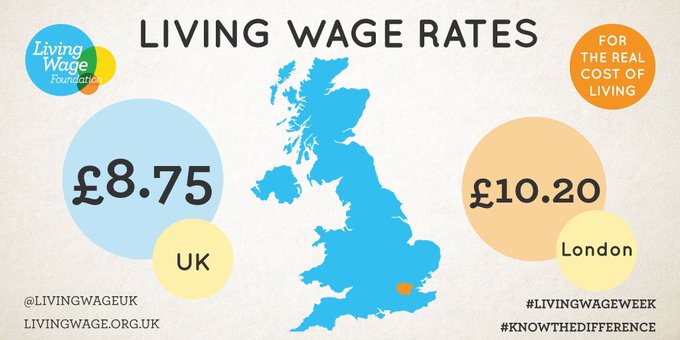
It's well known that millennials are less well off than their parents and grandparents' generations, but their woes may just be eased a little starting next April.
Young workers aged 18-24 are set to receive their biggest national minimum wage increase in a decade, a new analysis has revealed. More for us to spend on our avocado toast and posh coffees then, apparently.
In last week's Budget, Chancellor Philip Hammond announced that from April 2018, the government's 'National Living Wage' will go up from £7.50 ($10.05) to £7.83 ($10.50) an hour for workers aged over 25, an increase of 33p (44¢).

Credit: PA
Advert
The minimum wage for 21 to 24-year-olds will go up by the same amount to £7.38 ($9.89), while 18-20-year-olds can expect at least an extra 30p (40¢) in their pay packet as their rate goes up to £5.90 ($7.91) an hour.
16 and 17-year-olds will see a smaller increase of 15p (20¢) to £4.20 ($6.63). Apprentices under the age of 19 or in the first year of their apprenticeship can enjoy a 20p (27¢) increase of their rate, guaranteeing them a minimum of £3.70 ($4.96) an hour.
The Low Pay Commission (LPC), an independent body which recommends minimum wage rates to the government, said 18 to 24-year-olds will receive their largest pay boost in at least ten years.
Advert
"The LPC is pleased that the Government has accepted our recommendations to increase the national minimum wage (NMW) rates for young people," said Bryan Sanderson, chairman of the LPC.
"Many thousands will benefit directly and thousands more will benefit from the increases to the NLW.
"If economic conditions, particularly the labour market for younger workers, remain positive or improve then there will be grounds for further increases in NMW rates for younger workers in the future."
All of this may sound great, but the new 'National Living Wage' will still be lower than the voluntary 'real' living wage which is set by the Living Wage Foundation.
Unlike the government's minimum wage, the 'real' living wage is calculated according to what employees and their families actually need to live.
Advert
The higher rate - currently £10.20 ($13.67) an hour in London and £8.75 ($11.73) outside the capital - is voluntarily paid by thousands of employers who choose to opt into the scheme.
Either way, this increase means slightly more in the pockets of the young adults who need it most. I'll raise my latté to that.
Source: Metro UK
Featured Image Credit: PA